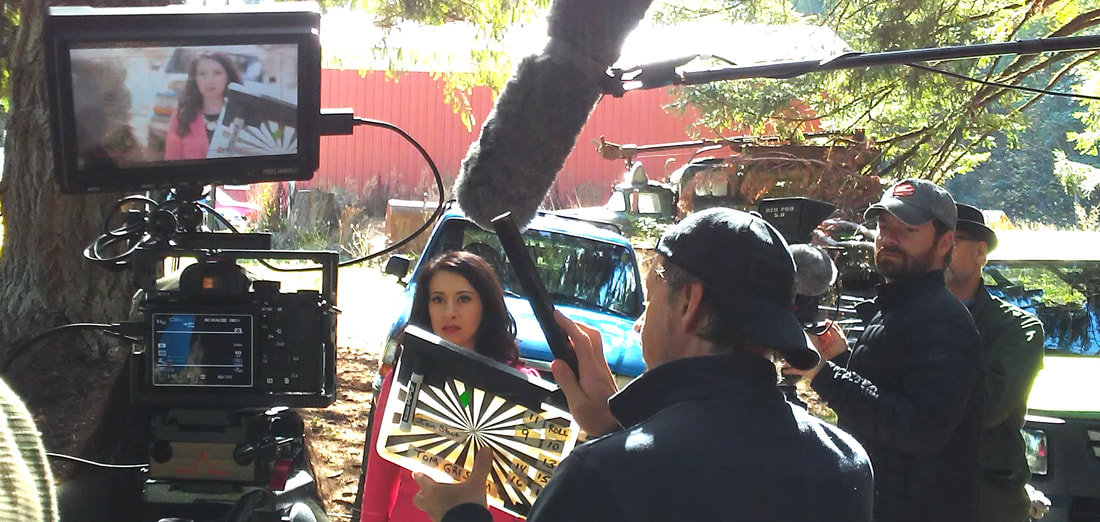 (NOTE: This information was created originally for the One Broke Actress podcast based on a conversation I had with the host Sam Valentine for our April check-in episode.) I'm a producer for the One Broke Actress podcast, and in a recent episode I brought up #StopAsianHate and my feelings as a half-Filipino woman in the entertainment industry. Sam asked me what actors specifically can do to be better allies to BIPOC actors. In the moment I was too emotional to think of a coherent answer. Being an ally in the context of the entertainment industry (especially as an actor) has nuance that I wanted to make sure I considered with care. So, with the help of many incredible BIPOC actor friends and acquaintances (see list at the end of this post), I pulled together 8 key things that fellow actors can do to support and be better allies to BIPOC actors. Please share this around so that we can empower as many people as possible to truly be allies in our industry. (If you’d like to share w/ the Instagram carousel post, you can find it here.) 8 Ways To Be A Better Ally To BIPOC Actors (note: BIPOC = Black, Indigenous, and People of Color) 1) Encourage and champion inclusivity. Are you making your own project? Actively seek BIPOC collaborators who have different experiences from you. Advocate for a diverse and inclusive cast, crew, and production team. A higher level of diversity enriches your projects. 2) Educate yourself on BIPOC history. Read books and articles, listen to podcasts, and watch documentaries to educate yourself on unconscious bias, untold history, anti-racist work, and the experiences of BIPOC communities especially those in the entertainment industry. Inspire those around you to do the same. “Reel Inequality: Hollywood Actors and Racism” - book by Nancy Wang Yuen is a great place to start. 3) Expand your knowledge of BIPOC experiences. Watch TV shows/movies/theater, read books, listen to music etc... made by BIPOC creatives showing perspectives different from your own. Diversify your IG feed. Make sure that the accounts you are following aren’t all from people who look like you, and/or people who have the same life experiences as you. 4) Amplify the work of BIPOC creatives. Spread the word! Use your social media platforms to share what creatives in the BIPOC community are doing whether they are actors, musicians, visual artists, writers, etc... Amplification of BIPOC voices is crucial. It enhances a greater level of awareness and appreciation for the wide variety of experiences that should be reflected in the content that mainstream media funds and creates. 5) See or hear something? Say something. When you see microaggressions taking place towards a BIPOC actor or crew member on set, in a reading, in class, etc… speak up. Nothing will change if everyone stays silent. 6) Advocate for proper representation and diversity in casting. Don’t submit for roles that call specifically for a BIPOC actor. Instead, refer someone you know who could play that part. Also, be mindful about the roles you audition for and play. Is the opportunity better suited for someone of a different identity? Is the role perpetuating a harmful stereotype or supporting a harmful idea? Be conscious of the projects you take part in and not just your specific role. Does the project overall truly promote diversity? 7) Listen. If you hear a BIPOC actor talk about something happening to them, don’t gaslight them by insisting that they are wrong. Listen, truly listen. This is how you actively help bring a voice to BIPOC pain that has long been silenced. 8) Don't perpetuate harm. Complaining about roles going to "someone of color", that everything is "going diverse", or about comparatively fewer auditions and roles because of the push for inclusion, may mean that you have benefited from white privilege in your career. Be conscious of these feelings and understand they perpetuate a system that diminishes BIPOC actors and creates an imbalanced portrayal of society. Celebrate your fellow creatives landing opportunities they have never had before. What can you do now? READ: Reel Inequality: Hollywood Actors and Racism by Nancy Wang Yuen White Fragility by Robin DiAngelo Minor Feelings by Cathy Park Hong How to Be An Anti-Racist by Ibram X. Kendi LISTEN TO: Code Switch (podcast) FOLLOW: @antiracismdaily @blklivesmatter @capeusa @caamedia @thejtclist @naacp @globalgirlhood @latinorebels @stopaapihate @arraynow @pillarsfund @menaadvocac @menafilmfestival @indigenouspeoplesmovement @_illuminatives @thelatinxhouse And SHARE THIS article. THANK YOU to these incredible fellow BIPOC actors and industry creatives who shared their thoughts with me and contributed to this: Amy Argyle Lynn Chen Lava Buckley Tanya Perez Sarah Siadat Sasha Hayden Joanna Ke Rene Wang Ryan Singh Mahlena-Rae Johnson Alyssa Derezycky Rosa Falu Henry J Mah Julia Morizawa Sabine Mondestin Thanks also to Deborah Lee Smith & Leah Cevoli for their proofreading eyes. And a BIG thank you to Sam Valentine for providing a platform to talk about these important issues. With much gratitude, xo Helenna Connect with me on Instagram: @helennamsantos and twitter: @helennamsantos *photo taken of Helenna Santos on the set of "The Shasta Triangle" produced by Mighty Pharaoh Films
|
About HelennaHelenna Santos is an actor, writer, and producer. Newsletter Signup:ArchivesCategories
All
|
 RSS Feed
RSS Feed